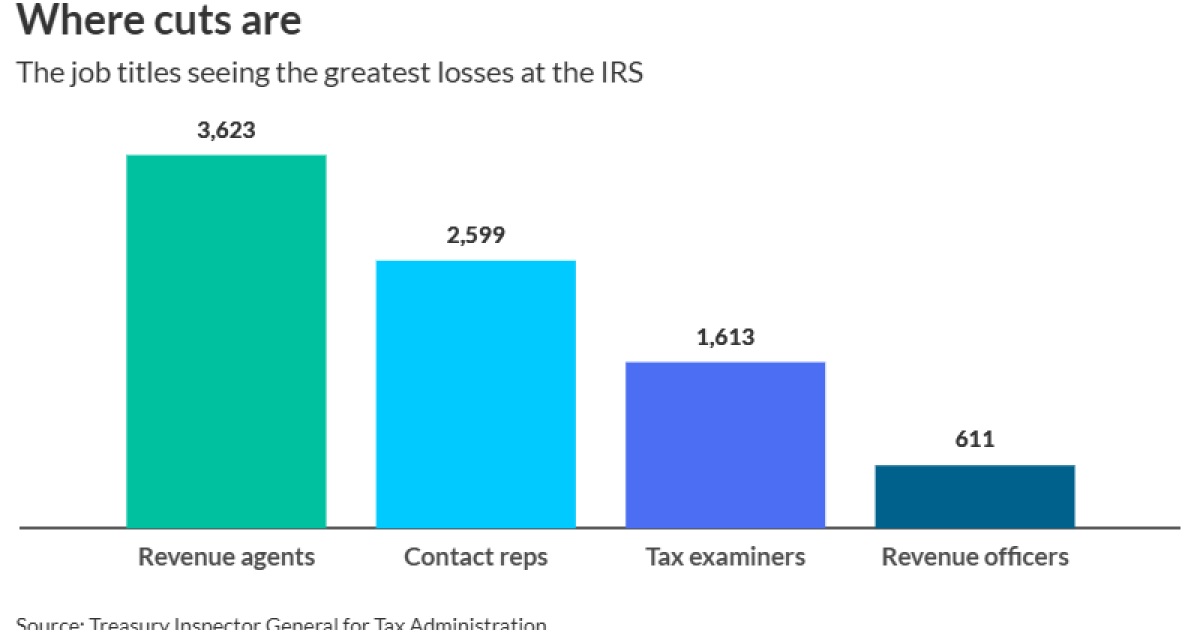Diversity, equity and inclusion is on the chopping block at accounting firms.
In a February media flurry, big firms like Deloitte and KPMG said they were scrapping their DEI goals and initiatives amid the current political landscape. Deloitte US dropped its DEI programs and asked its employees working on government contracts to remove gender pronouns from their email signatures. KPMG deleted the annual “transparency reports” that it has published since 2020 that detail its efforts to increase representation of women and minorities within the organization.
As big firms pull back, and presumably more firms quietly do the same, it can be easy to assume that this is the end of DEI as we know it. But things may not be as bleak as they seem, some leaders say.
“You have to look at the profession through a number of different lenses to really understand the impact,” said Jina Etienne, CEO of Etienne Consulting.
Staying the course, quietly
The wave of pullbacks — in the accounting profession and across broader corporate America — followed numerous executive orders issued by the Trump administration, including one order stating that the U.S. government would only recognize two sexes in all official documents and messaging, and mandating that “federal funds shall not be used to promote gender ideology” and government agencies should “ensure grant funds do not promote gender ideology.”
In particular, firms that are government contractors, or firms with clients who are federal contractors, risk losing their funding by keeping their “noncompliant” DEI programs up and running.
“Organizations probably can’t really boast about what they are doing anymore,” said Crystal Cooke, director of diversity and inclusion at the American Institute of CPAs. “It’s not in their benefit if they’re trying to protect the people in their workplace, because if they make too much noise that makes them a target.”
“I hear a lot about people saying, ‘Why isn’t everyone being loud and proud?'” Cooke continued. “I feel you don’t have to be loud and proud to show your actions and how you support this. If you still see that organization doing things that support programming, if the people who work there feel like they are still being supported, then they are achieving their goals. We can’t always shout things from the rooftops, especially in this environment, because we just don’t know how it’ll affect people who could be impacted. But that doesn’t mean the work’s not being done.”
Accounting is a risk-averse profession by nature. Firms may not want to expose themselves to the reputational risk, or the possibility of losing clients, by publicizing their DEI efforts.
“As accountants, predominantly in public accounting, you have to stay under the radar. We do not want to attract attention to ourselves and give rise to questioning the quality, the independence,” Etienne said. “The assurance work that we do will no longer feel like assurance if we were under attack.”
Many firms, Etienne speculates, will minimize the publicity surrounding their DEI programs while still maintaining them internally. Some firms may drop the name “DEI” and swap it for less politicized language such as “culture,” “inclusion,” “wellbeing” and “belonging.”
“The letters in a sequence D-E-I have become a word. That word has a meaning. It is so much more complex and nuanced than that,” Etienne said. “I’ve always struggled with and invited clients to decouple the terms and really think about the body of work that is behind diversity, equity and inclusion because they’re distinctly different things.”
“But everyone is responding to ‘DEI,’ which the term now has been co-opted,” she continued. “It has been co-opted to mean reverse discrimination — that people who are not qualified for jobs are getting jobs, and people who should have jobs don’t have those jobs — and it’s all coded for race.”
The silver lining
Accounting firms have a strong impetus to keep their DEI programs active. Amid the profession’s ongoing talent crisis — with fewer students studying accounting, fewer earning their CPA license and even fewer staying in the profession until they make partner — DEI taps into under-recruited demographics and, thus, expands the talent pool. DEI is also crucial when it comes to retaining talent, especially young people.
(Read more: What can small firms do about DEI?)
“I think firms are kind of caught between a rock and a hard place because clients are looking at this and they don’t want to alienate clients,” said Jennifer Harrity-Cantero, ESG and sustainability director at Top 100 Firm Sensiba. “But the accounting world over the last few years has really seen what DEI can do for employee satisfaction, for lowering turnover rates, for employee engagement — and that is something that is hugely valuable to accounting firms.”
DEI improves the bottom line, research shows. Companies in the the top quartile for gender diversity on executive teams are 25% more likely to have above-average profitability than companies in the bottom quartile, and companies in the top quartile for ethnic and cultural diversity outperformed by 36% in profitability, according to McKinsey.
Etienne sees an unexpected silver lining in the crackdown on DEI. In the past, she sensed an aspect of performative activism fueling firms’ DEI efforts. Following the murder of George Floyd by Minneapolis police in 2020, corporate America renewed its commitments to DEI initiatives, such as implementing diverse recruitment practices, increasing pay equity, establishing employee resource groups, and hosting trainings on topics such as unconscious bias and microaggressions.
But in her work as a consultant, she has found, “Many leaders felt that the demonstration and the evidence of their commitment is the fact that they’re talking to me right now. ‘Yeah, I’ve hired you. How much more committed can I be?'” she said. “So I don’t think there was a deep understanding, or an interest in having a deep understanding, of how DEI is already woven into the ecosystem of an organization. It touches everything. But they didn’t want to do that.”
By removing the social reward of championing DEI, Etienne explained, “We can all stop patting ourselves on the back and putting pretty words on the website and saying, ‘Yay, yay, yay,’ and we can do the work.”


 Economics1 week ago
Economics1 week ago
 Accounting1 week ago
Accounting1 week ago
 Blog Post5 days ago
Blog Post5 days ago
 Economics1 week ago
Economics1 week ago
 Personal Finance1 week ago
Personal Finance1 week ago
 Economics6 days ago
Economics6 days ago
 Personal Finance1 week ago
Personal Finance1 week ago
 Finance1 week ago
Finance1 week ago











